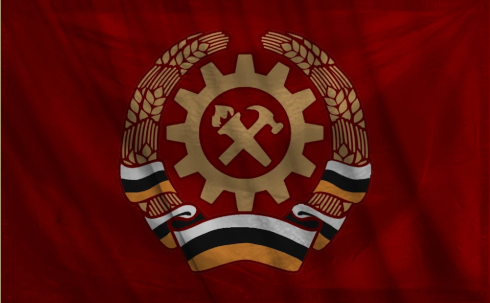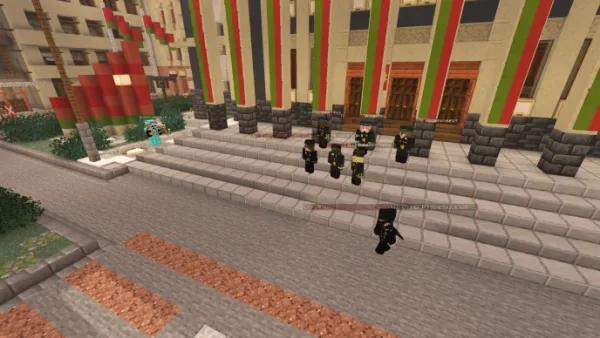Vozdravija, Radio Silence in Times of Crisis

Once a brilliant centre of revolutionary vision in Abexilas, the Aegist Republic of Vozdravija is now in catastrophe. But there is not external invasion: it is an internal subversion in this case as Fisalek, the unconstitutionally appointed General Secretary, unfolds the very structures supporting the revolution. What started as a project of hope in building socialism under the Red Aegis ends up with an authoritarian purge of Vozdravija's most loyal and capable citizens.
Fisalek's coup marked the complete removal of the revolutionary ideals defining Vozdravija. He was appointed General Secretary but was unable to run the government effectively, relaying many of the state tasks to his Deputy Secretary, Alexei Aegisov. As Aegisov directed its course, Vozdravija flourished. The government was reconstructed, the Red Circuit Economy was established, and foreign relations with the ASI were strengthened.
Still, Fisalek became increasingly paranoid and accused Aegist loyalists and ASI supporters of trying to undermine his regime. In this unprecedented step, Fisalek suspended the Commissariat, dissolved the elected Central Committee, and purged three-quarters of the active population. His regime justified this delusion by thinking the Vozdravija was the last piece in an imaginary Zilatran plot to take over. The full restoration of SuvKolism in Vozdravija has plunged the nation back into the depths of autocracy and oligarchic exploration. Under the guise of stability, the Fisalek regime has reestablished a centralised dictatorship, consolidating power into the hands of a few unelected bureaucrats and elites, gaining loyalty through bribes of positions in the oligarchy.
The aftermath was catastrophic. Exiled were the revolutionaries, who built Voxdravija with their toil and sacrifice. The nation's alignment with socialist allies has been abandoned in favour of overtures to the UDNO, a coalition hostile to socialism. The betrayal of the revolution has left Vozdravija isolated, vulnerable, and on the brink of collapse.
But Hope still lives on. The Aegiroviks, led by their government in exile, continue the struggle. The Red Circuit is still alive, serving the economic backbone for its eventual resurgence.
The stakes are high, not just for Vozdravija but for the broader socialist movement in Abexilas. If the Vozdravijan resistance succeeds, it will reaffirm the strength of revolutionary solidarity. If it fails, it risks setting a dangerous precedent for counter-revolutionary forces elsewhere, that one can simply overthrow socialism and scare the ASI into action.
The fight for Vozdrabija's soul is far from over. Revolutionaryes remain steadfast, determined to rebuild and reclaim their nation. As the resistance grows and international support gathers, the question remains: will the revolution endure, or will it be extinguished?




